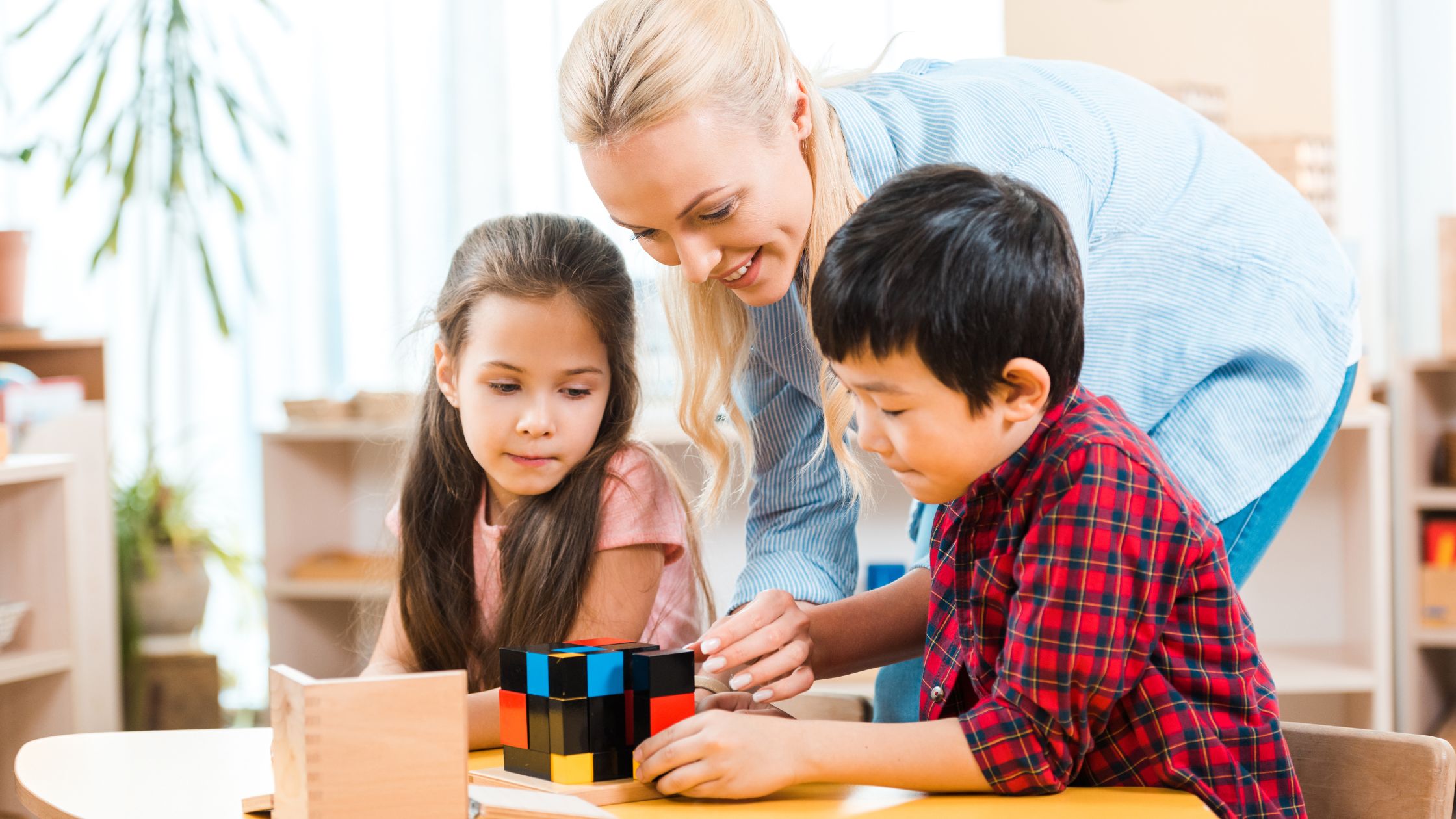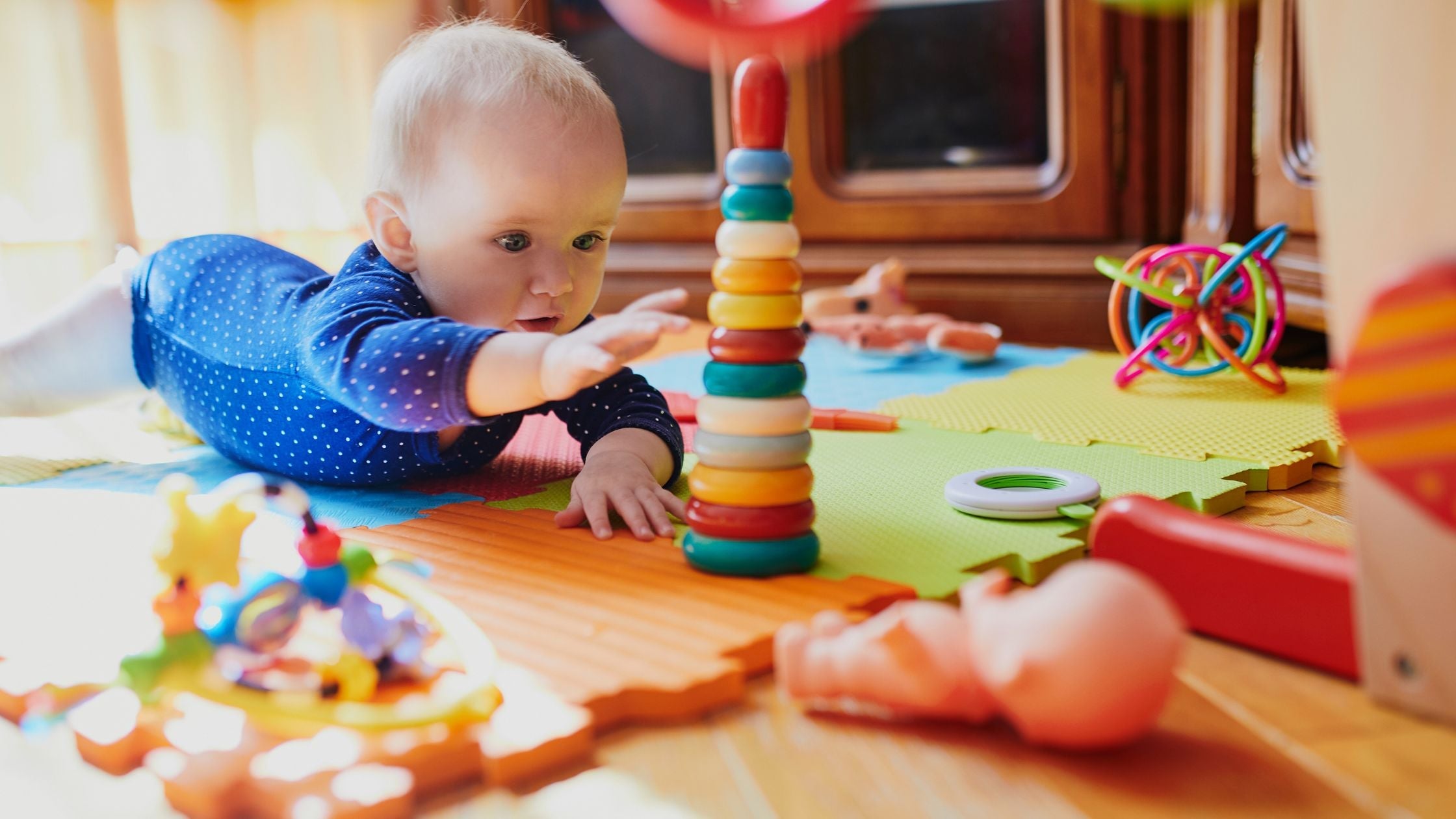In the ever-evolving world of parenting and early childhood education, one question frequently arises: Are Montessori toys better for your child's development? It's a question that sparks curiosity, debate, and a quest for the best ways to nurture a child's growth. As parents, guardians, or caregivers, we all want what's best for the little ones in our lives. In this exploration, we'll delve into the world of Montessori toys and shed light on their unique approach to childhood development.
Understanding Montessori Toys
Montessori toys are more than just playthings. They are educational tools crafted to align with the Montessori method, a renowned educational philosophy developed by Dr. Maria Montessori in the early 20th century. These thoughtfully designed toys serve a specific purpose: to engage children in ways that encourage self-directed learning, independence, and a deeper understanding of the world around them.
The Montessori Philosophy
At the heart of Montessori toys is the Montessori educational philosophy, built on the belief that children are naturally curious, capable of self-direction, and eager to explore. The Montessori approach encourages children to take the lead in their education and development. Here's what makes it stand out:
1. Independence: Montessori toys nurture a child's ability to do things for themselves, which is a cornerstone of the Montessori method.
2. Self-Direction: These toys empower children to choose their activities and learn at their own pace, promoting a sense of autonomy.
3. Sensory Exploration: Many Montessori toys are designed to engage a child's senses, supporting the development of sensory perception and awareness.
4. Practical Life Skills: Montessori education places a strong emphasis on teaching practical life skills, and some Montessori toys are geared toward this purpose.

The Montessori Approach to Child Development
The Montessori approach is founded on the belief that children thrive when given the freedom to explore their interests and capabilities. In this philosophy, children are their best teachers when allowed to be self-directed learners.
1) Self-Directed Learning
Montessori education encourages children to take charge of their learning journey. They are given the autonomy to choose their activities, discover answers to their questions, and work at their own pace. This approach not only fosters independence but also ensures that education becomes a joyful, intrinsically motivated process.
2) The Prepared Environment
The Montessori approach emphasizes the creation of a prepared environment, meticulously designed to stimulate a child's natural desire to explore, learn, and become more self-sufficient. Montessori classrooms and play areas are organized and equipped with materials that cater to a child's developmental needs.
3) Practical Life Skills
Montessori education places a strong emphasis on practical life skills. Activities like pouring, dressing, and cleaning teach children essential life skills while also improving their fine motor skills and fostering a sense of responsibility. Montessori toys that support these practical life skills are designed to engage and educate.
4) Sensory Exploration
The Montessori method recognizes the importance of sensory experiences in early childhood development. Many Montessori toys are designed to engage a child's senses, promoting tactile, visual, and auditory development.
5) Holistic Approach to Development
Montessori education is about holistic development. It goes beyond academics to encompass emotional, social, and physical development. Montessori toys are crafted to address all these aspects, ensuring a well-rounded and enriching learning experience.

Comparing Montessori Toys to Traditional Toys
Montessori toys are often compared to traditional toys, and understanding the distinctions is crucial in assessing their value for a child's development.
The Key Differences:
Traditional toys, which include plastic playsets and battery-operated gadgets, are designed primarily for entertainment and often offer passive engagement. In contrast, Montessori toys are educational tools deliberately created to stimulate learning and development actively.
Montessori Toys vs. Traditional Toys:
Montessori toys focus on promoting independence, self-directed learning, and practical life skills. They encourage children to explore, solve problems, and develop fine motor skills. Traditional toys, while entertaining, may not offer the same educational value or developmental support.
Making an Informed Decision
When choosing toys for your child's development, making an informed decision is paramount. Consider your child's unique needs, interests, and developmental goals. Balance their desire for open-ended, creative play with structured learning activities. A blend of both Montessori and traditional toys can offer a well-rounded approach to development.
In the quest to provide the best opportunities for your child's development, it's clear that Montessori toys offer unique benefits aligned with the Montessori philosophy. While both Montessori and traditional toys have their place, making an informed decision is crucial. Consider your child's individual needs
FAQs: Montessori Toys For Babies
What are Montessori toys, and how do they benefit child development?
Montessori toys are educational tools designed to promote independent learning, sensory exploration, and practical life skills. They foster cognitive, emotional, and physical development in children.
What age group are Montessori toys suitable for?
Montessori toys cater to a wide age range, from infants to older children, offering age-appropriate challenges and activities.
How do I choose the right Montessori toy for my child?
Consider your child's age, interests, and developmental stage when selecting a Montessori toy that aligns with their abilities and provides growth opportunities.
Are Montessori toys only for parents following the Montessori method?
Montessori toys benefit any child, as they promote essential skills and encourage independent learning, regardless of parental education philosophy.
Why are Montessori toys often made of wood?
Montessori toys are typically wooden because wood is natural, non-toxic, and durable. Wooden toys provide a sensory-rich experience, encourage open-ended play, and are eco-friendly.




Leave a comment